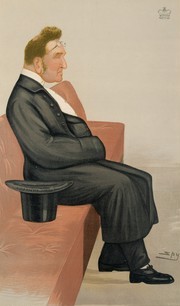|
Home
|
Jul 3, 2017
This week’s themePeople who became verbs This week’s words grimthorpe mithridatize penelopize Robinson Crusoe out-Herod 
Edmund Beckett, first Baron Grimthorpe
Vanity Fair Feb 2, 1889
A.Word.A.Day
with Anu GargYou can do good things or bad, but if you do them greatly, differently, or intensely, chances are your name will become a word. There was a real man named Boycott who became a verb (and noun) in English (and other languages: French boycotter, Spanish boicotear, Greek μποϊκοτάρω, and so on). And there are many more people, from fact and fiction, who live on in the English language as verbs. This week we’ll meet five such people from real life and fiction and mythology. grimthorpe
PRONUNCIATION:
MEANING:
verb tr.: To restore or remodel something without paying attention to its original character, history, etc.
ETYMOLOGY:
After Edmund Beckett, first Baron Grimthorpe (1816-1905), an architect
whose restoration of St. Albans Cathedral in England was criticized for
radical changes made to the building. Earliest documented use: 1890.
USAGE:
“Hey, let’s zone against any further grimthorping in Springfield.” Take My Word for it; State Journal Register (Springfield, Illinois); Apr 21, 2005. A THOUGHT FOR TODAY:
It has been said that a pretty face is a passport. But it's not, it's a
visa, and it runs out fast. -Julie Burchill, writer and journalist (b. 3
Jul 1959)
|
|
Subscriber Services
Awards | Stats | Links | Privacy Policy
Contribute | Advertise
Awards | Stats | Links | Privacy Policy
Contribute | Advertise
© 1994-2025 Wordsmith